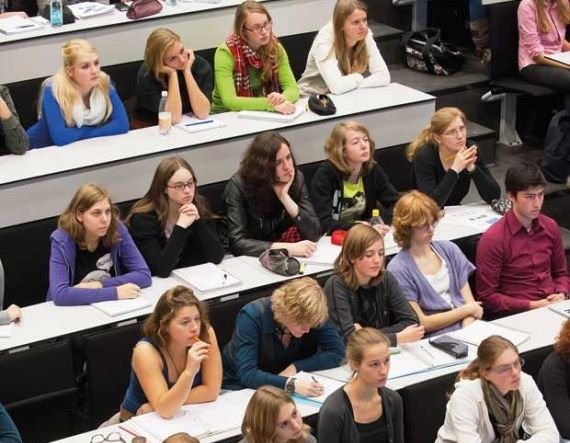The return of the basic grant as of the academic year 2023-2024 has not yet led to a dip in enrolments for the coming academic year. But it is still too early to draw conclusions, according to recruiter Renske van Dijk. The question is whether the change in the financing system has been properly communicated to prospective students and their parents.
Many educational institutions are holding their breath: will the announced abolition of the loan system cause the number of first-year Dutch BSc students to plummet in the coming academic year, only to go through the roof the following year when the basic grant returns? It is a difficult question to answer, because in addition to the changing student financing system, the Covid situation is still creating uncertainty around decisions about university.
Pros and cons
A gap year could be a tempting way of circumventing the last year of the loan system. On the other hand, the world is still largely in lockdown because of the Covid pandemic. ‘Everyone, including the ministry, wonders how these factors will affect decisions made by High School students,’ says Student Recruitment team leader Van Dijk. Even market research firms cannot quite put their finger on it yet.’
So far, there does not seem to be a widespread preference for a gap year. Nationally, the number of preliminary registrations is actually still about 4.7 per cent higher than it was this time last year. ‘But that mainly applies to degree programmes with an enrolment cap, such as Medicine. It is quite possible that the interest in those is less sensitive to changes in student financing than is the case for “ordinary” degree programmes.’
Difficult prognosis
At WUR, the number of preliminary registrations is currently comparable to that of last year around this time. However, it is too soon for a reliable prognosis, cautions Van Dijk – the ‘high season’ for recruitment is still to come. And from parent publicity officer Hermien Miltenburg I understood that parents and deans are increasingly interested in gap years. So it cannot be ruled out that the changing student financing system will still become an important factor’.
No further fall
Last year, the number of Dutch Bachelor’s students at WUR fell quite sharply, by 14 per cent. ‘That was a national trend: the Covid effect’, says Van Dijk. ‘There wasn’t much we could do about it, but of course we don’t want it to fall even further.’ So this spring will be a critical moment. Student Recruitment will use surveys and focus groups to investigate whether WUR’s publicity (through a deliberate mix of online and face-to-face channels) meets the needs of prospective students and their parents. There will be on-campus open days for Bachelor’s degrees again on 19 and 26 March.

 How many first year students will do research in the Forum pond next academic year? Photo Guy Ackermans
How many first year students will do research in the Forum pond next academic year? Photo Guy Ackermans


